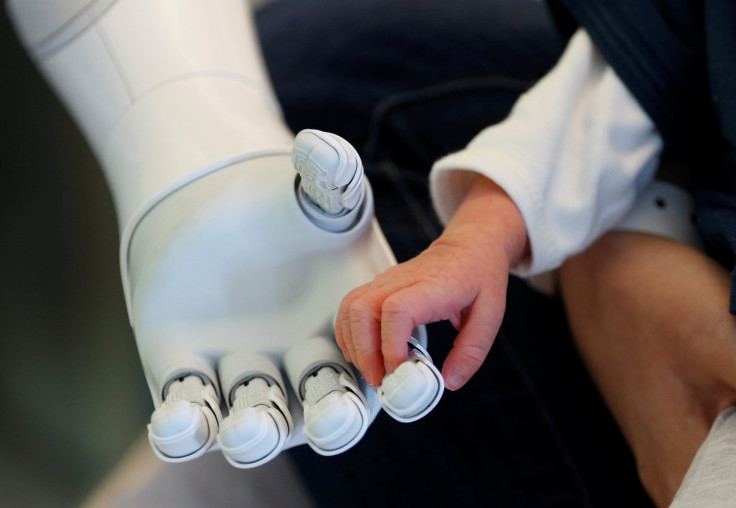Robots Taking More Jobs? Google, Facebook, Apple, Samsung Among Tech Giants Using Artificial Intelligence

Robots and other artificial intelligence will replace humans for many service industry jobs as some of the world’s technology companies expand their improving research, according to a business consulting firm’s new report.
New York-based Forrester Research says six percent of jobs could be filled by “early-stage intelligent agents,” or IAs, by 2021 as tech giants like Facebook, Amazon, and Apple continue to develop smarter, algorithm-based bots like Siri and Alexa.
It also named industries like trucking and taxis, which could see revolutionary technology like self-driving cars replace humans.
"By 2021, a disruptive tidal wave will begin," Brian Hopkins, vice president at Forrester, wrote in the report. "Solutions powered by AI/cognitive technology will displace jobs, with the biggest impact felt in transportation, logistics, customer service, and consumer services."
Facebook and Google are reportedly on the hunt for talented programmers who can help them expand their already considerable data banks to improve the algorithms that are already helping artificial intelligence better understand human language and “complex scenarios.”
The idea of robots and other AI replacing humans is nothing new, and many reports this year have made similar predictions but with far more striking figures. According to Digital Trends, researchers at the World Economic Forum predicted that between 2015 and 2020, 7.1 million jobs could be lost to robots or AI and many will be from “the Office and Administrative job family.”
And the predicted move toward robot labor has already been executed by Apple and its rival Samsung. BBC reported in May that China-based Foxconn Technology Group, one of Apple and Samsung’s main suppliers, cut down its workforce from 110,000 to 50,000 by using more robots.
"We are applying robotics engineering and other innovative manufacturing technologies to replace repetitive tasks previously done by employees, and through training, also enable our employees to focus on higher value-added elements in the manufacturing process, such as research and development, process control and quality control," Foxconn told BBC in a statement. "We will continue to harness automation and manpower in our manufacturing operations, and we expect to maintain our significant workforce in China."
© Copyright IBTimes 2025. All rights reserved.





















